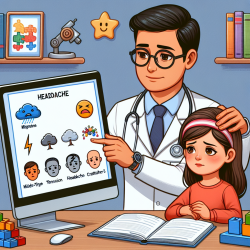Understanding PTSD in Unaccompanied Refugee Minors
Unaccompanied refugee minors (URM) face unique challenges that significantly impact their mental health. The prevalence of post-traumatic stress disorder (PTSD) among these children is alarmingly high, ranging from 17% to 85%, as highlighted in a comprehensive scoping review. Understanding the contributing factors, protective elements, and effective interventions can empower practitioners to make data-driven decisions that foster healing and resilience in these vulnerable populations.
Contributing Factors to PTSD
The review identifies several contributing factors to PTSD in URM, including cumulative stress and trauma, guilt, shame, and uncertainty about legal status. The loss of parental support and exposure to violence exacerbate these issues, leading to higher rates of PTSD compared to minors accompanied by family members.
Protective Factors and Resilience
Despite these challenges, several protective factors can mitigate the impact of trauma. Resilience, a trusted mentor, belonging to a social network, and maintaining a connection with family, even if distant, play crucial roles in fostering mental health. Countries that affirm multiculturalism and provide supportive environments enhance the resilience of URM, aiding their recovery and integration.
Effective Interventions for PTSD
The review outlines five interventions that have shown effectiveness in treating PTSD among URM:
- Trauma-Focused Cognitive Behavioral Therapy (TF-CBT): This widely studied approach helps children process trauma through psychoeducation, relaxation techniques, and cognitive processing.
- Mein Weg: A group-processing mixed therapy approach that combines TF-CBT with meditation practices to reduce PTSD symptoms.
- Teaching Recovery Techniques (TRT): A group intervention that helps children manage trauma-related emotions and gain mastery over traumatic reminders.
- Expressive Arts Intervention (EXIT): This approach uses music, art, and dance therapy to improve emotional well-being and foster hope.
- Narrative Exposure Therapy for Children (KIDNET): A short-term therapy that helps children construct a narrative of their traumatic experiences, aiding in symptom reduction.
Encouraging Further Research and Application
While these interventions offer promising results, continued research is essential to refine and expand their applicability. Practitioners are encouraged to explore these therapies and consider the unique needs of URM in their care. By integrating trauma-informed practices and fostering resilience, we can improve outcomes for these children, helping them thrive despite their challenging circumstances.
To read the original research paper, please follow this link: Post-Traumatic Stress Disorder in Unaccompanied Refugee Minors: Prevalence, Contributing and Protective Factors, and Effective Interventions: A Scoping Review.










